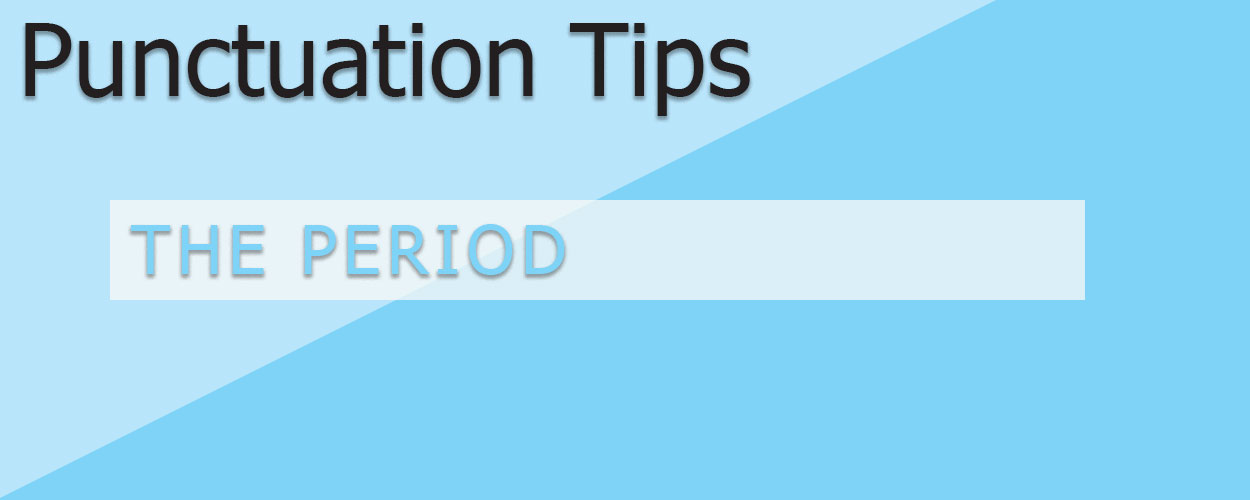

Posted: November 29, 2022
Definition: a punctuation mark (.) used at the end of a sentence or an abbreviation.
The period, arguably the most common punctuation mark, has three uses: to end a sentence, to separate letters in an abbreviation, and to indicate a typographic break.
Use a period at the end of a statement/declarative sentence.
Use a period at the end of a mild command/imperative sentence.
If the imperative sentence is also an exclamation, use an exclamation point instead. [Related Article: Punctuation: The Exclamation Mark]
Use a period at the end of an indirect question.
Unlike a direct question, an indirect question uses the wording and subject-verb order of a statement: the client asked why the bread was out of stock [not why was the bread out of stock].
It is possible to use a period at the end of a rhetorical question.
Rhetorical questions can also end with a question mark or an exclamation point.
It is not common to use periods within a list, however, if a complete sentence follows at least one item in the list, put periods after all items.
Use a period after a person’s initials (unless current style dictates otherwise). Have either a space after each period or no spaces between two or more initials, depending on the style you are using.
Use a period after traditional abbreviations of state and province names but not after the postal service abbreviations of them. In some cases, you can use periods between and after the letter of province/territory abbreviations.
Use a period and no space (or a space after) in other common abbreviations. Depending on the style and/or dictionary, these abbreviations may not use periods at all.
A period at the end of an abbreviation may be followed by any other punctuation mark aside from another period.
Use a period after numbers (or letters) in a displayed list:
Do not use a period following displayed headings. If the headings are complete sentences, use other punctuation.
Use a period (if it is in the style) in references to figure and table numbers [Related Article: Punctuation: The Hyphen].
A period goes inside an end quotation mark.
Do not use a period with an exclamation point or a question mark.
A period may go either inside or outside parentheses, depending on what is enclosed within them. If the enclosure is an independent sentence, it takes its own period. If the enclosure is not an independent sentence, the period goes after the close parenthesis.
A period usually goes inside a single quotation mark; with philosophical terms it occasionally goes outside. (It acts the same way as commas.)
In British style, since single quotes are used instead of double quotes, so spacing is less of an issue. Therefore, periods and commas can go outside of quotations.
Use a period with ellipsis points in verbatim attribution.
In MLA format, use a period after an ellipse if the sentence ends.
Aaron, J.E. & Morrison, A. The Little, Brown Compact Handbook, 5th Canadian ed. Pearson, 2013, chap 5
Judd, K. Copyediting, A Practical Guide, 3rd ed. California, CA: Crisp Learning, 2001, chap 4
Tigerpetal Press is a small book press dedicated to publishing local authors and poets.